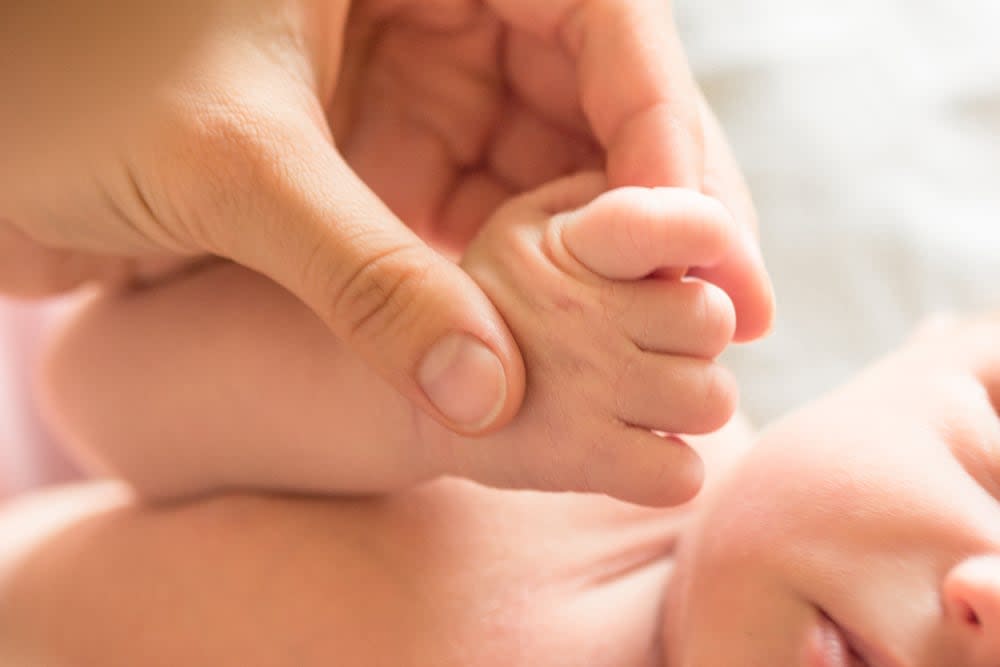Salvation Army sues Manitoba family services agencies after allegations unmarried moms coerced into adoptions

Two years ago, a proposed national class action lawsuit filed against the Salvation Army alleged the Canadian charity took advantage of unmarried soon-to-be mothers who lived in the organization's maternity homes — and allegedly coerced them into placing their newborns up for adoption.
Now, a Manitoba lawsuit filed by the Salvation Army alleges that in that province, it's some child and family services agencies who bear responsibility for any coercion during adoptions.
The Governing Council of The Salvation Army in Canada — the charity's legal entity — is suing multiple child and family services agencies, which it says oversaw adoptions in Manitoba and "owed a duty of care" to the pregnant women who lived at the homes.
Those agencies failed to make sure adoptions were "safe and free from coercion," according to a statement of claim filed Nov. 20 in the Manitoba Court of King's Bench.
The Salvation Army ran maternity homes throughout Canada from 1960 until they shut down in the 1980s. The proposed B.C. class action, which includes class members from Manitoba, alleges the women faced physical, sexual, emotional and psychological abuse, and their newborns were taken away from them without consent.
"The Salvation Army was not involved in the adoption decision-making process and did not induce mothers to place newborns for adoption. The CFSs were involved in the decision-making process," the Manitoba statement of claim says.
It claims the agencies breached their duty of care and their negligence caused any alleged loss to the class members.
Effort to reduce culpability: law prof
The suit names as a defendant "Child and Family Services ABC" — which it defines as "agencies licensed by the Crown," including "those historically known as 'Children's Aid Societies,' the particular identities of which are not currently known to the Salvation Army."
However, it says those agencies, along with the other defendants named, "oversaw the adoption process for newborns."
The other defendants named are Child and Family Services of Central Manitoba and Jewish Child and Family Service — private agencies with Crown mandates to provide child and welfare services in central Manitoba and Winnipeg, respectively.
As part of the Manitoba lawsuit, the Salvation Army is claiming its costs in defending itself in the B.C. class action, as well as "contribution and indemnity" for any amount it's found liable for in that class action, along with other damages.
The Salvation Army is saying, 'Look, we just gave these mothers a home.… These family and child services agencies are actually at fault.' - Suzanne Chiodo, York University
A spokesperson for Manitoba's general CFS authority, which is responsible for CFS of Central Manitoba and Jewish Child and Family Service, said those agencies haven't been served with the lawsuit.
Manitoba's CFS agency said it cannot comment on the lawsuit as it is before the courts.
None of these allegations have been proven in court.
Suzanne Chiodo, a York University assistant professor at Osgoode Hall Law School who studies class actions, said by suing the Manitoba CFS agencies, the Salvation Army is trying to reduce culpability in its involvement in the adoption process.
"The Salvation Army is saying, 'Look, we just gave these mothers a home,'" she told CBC on Friday.
"They're turning around and [saying], 'These family and child services agencies are actually at fault when you're talking about the adoption.'"
That's a common approach for organizations, Chiodo said, if they think other groups that aren't named in a class action bear some responsibility.
"If someone gets sued, and they think that someone else is either partially or wholly responsible for the wrong, then they can sue that other organization or person and say, 'You owe us if we're found at fault in this class action.'"
Homes meant to isolate, dehumanize: claim
The Salvation Army operated the homes for unmarried mothers from about 1940 to 1989, the Manitoba statement of claim says.
Two were run in Winnipeg — Bethany Home, located at 205 Arlington St. and Lindenview Residence at 205 Booth Dr.
A third, Grace Haven, operated in Steinbach.
They existed during a time "when the prevailing social norms and values … led young unmarried pregnant women, often at the direction of their families, to seek safe and confidential options for their personal care," the claim says.
But a court document filed as part of the proposed class action says the homes were meant to indoctrinate, dehumanize and isolate unmarried mothers and seize their newborns from them.
"These institutions were founded and operated on the basis that unmarried mothers were not capable of or not suited to raising children," it says.
The representative plaintiff of the class action, which was proposed on Oct. 7, 2021, in B.C.'s Supreme Court, moved to the Maywood Home in Vancouver in 1983 after she got pregnant at age 15 following a sexual assault, that statement of claim says.
She stayed at the maternity home until she was about eight months pregnant before returning to live with her parents, it alleges.
When the woman's child was born, she and the baby were immediately separated, the claim says.
Salvation Army denies allegations
The proposed class action says she and other class members were also subjected to psychological manipulation where staff instilled "feelings of guilt and inadequacy over her pregnancy and impending motherhood."
In a February response to the proposed class action, the Salvation Army denied the allegations against it.
John Murray, a spokesperson for the Salvation Army said the charity "was part of a system which provided care for unmarried mothers as a direct response to a societal need."
Chiodo said "it's quite likely" the Salvation Army will launch similar lawsuits in other provinces where it believes child and family service agencies were also in charge of adoptions.
The Salvation Army filed a similar lawsuit on Nov. 20 against children's aid societies in B.C. over alleged negligence at the maternity homes, according to an online news story published last week.


